Terrestrial Preshaped Foam Bodies 3 mm
Terrestrial Preshaped Foam Bodies 3 mm are precut, foam cylinders, great for tying various kinds of terrestrial flies: bees, wasps, bumblebees, etc. These bodies are preshaped – the ends are tapered to mimic the natural shape of the insect’s body, but can also be easily cut to desired length and shape. They are made of flexible, dense, foam-like material that makes them highly floatable. The material is water-resistant, flexible, very sturdy, and easy to work with.
These bodies have a diameter of 3 mm and feature a row of stripes at one end, making them perfect for tying great-looking bees, bumblebees, wasps…They come in three popular color variations: Yellow Stripes, Gray Stripes, and Honey Stripes.
These bodies are extra easy to work with, can be cut to shape, and are highly floatable, making your fly pattern very effective. When paired with our Realistic Insect Legs 3D, they make some killer flies.
10 bodies per bag.
Fly Fishing Terrestrial Flies
Terrestrial insects are land-bred. Some of the species of terrestrials include hoppers (grasshoppers), ants, beetles, bees, crickets, etc.
Terrestrials are one of the essential food sources for trout and other game fish during the summer months. Hot summer months are when the aquatic insects become sparse, the trout is the most active and grows the fastest. This is when terrestrials become their most important food source as a rich source of protein. A terrestrial falling into the water is a great and nutritious meal for fish as these insects are usually bulkier and heavier than aquatic insects and they provide a large calorie intake when the trout need it most.
Terrestrial fly patterns are effective from May till October, and sometimes even into November.
As terrestrials are most active and most likely to fall in the river during the day, the best time to fish these fly patterns is anytime from late morning all the way through the evening. Windy days are best as the wind ‘pushes’ them to the water. Optimal locations to present terrestrial patterns are along cut banks, grassy shorelines, or under big trees – places where fish wait for them – easy meals just dropping in. As these insects will eventually be pulled further into the river – midstream can also be a good place to present your fly.
On smaller streams fish are depending mostly on terrestrials as their food source. Small waters don’t have the high-energy riffles where the aquatic insects spend much of their lifecycles. For fishing small streams – terrestrials are a must.
Be it mid-summer, early fall, or the midst of spring – fishing terrestrial fly patterns can provide top dry-fly action!
A great fly tying recipe
Frosty Fly Realistic Bee
For a full list of ingredients for a Realistic Bee pattern, go here.

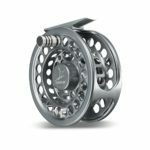
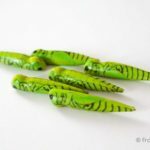
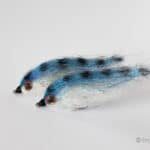
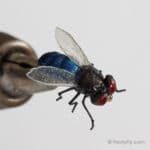
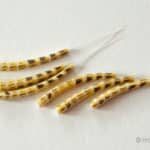
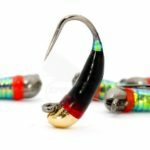
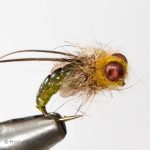
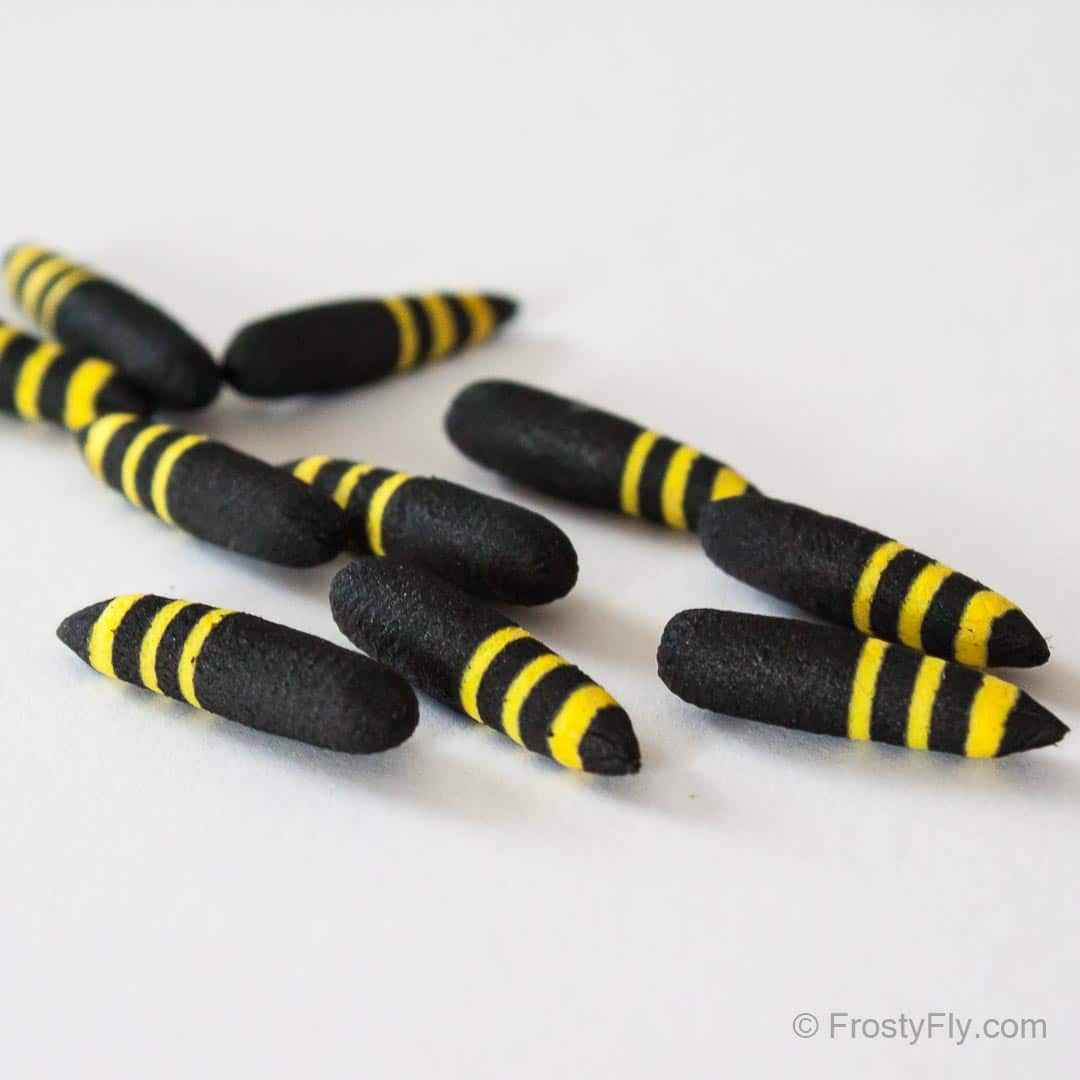
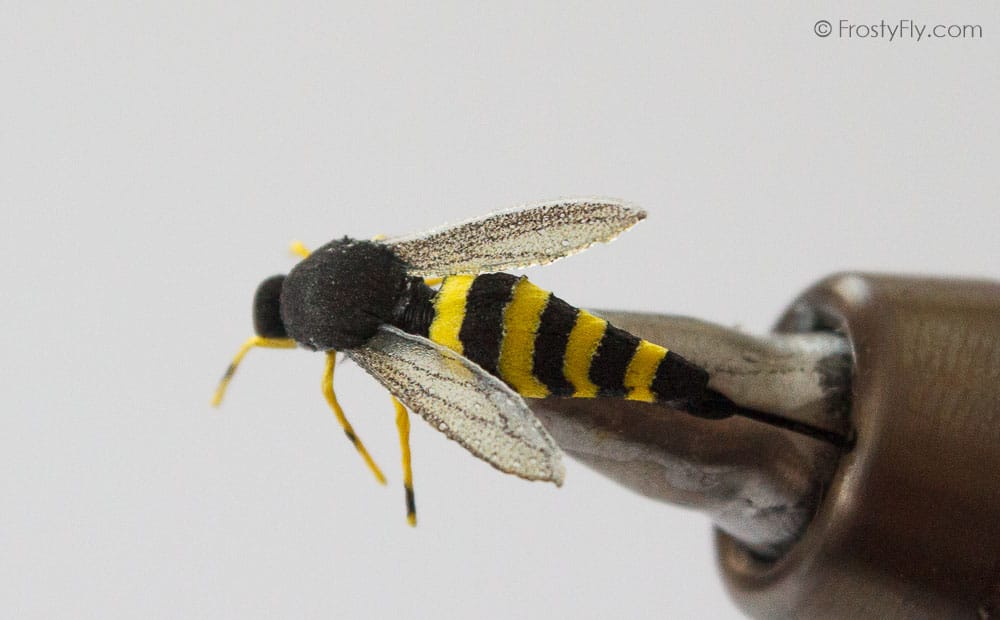
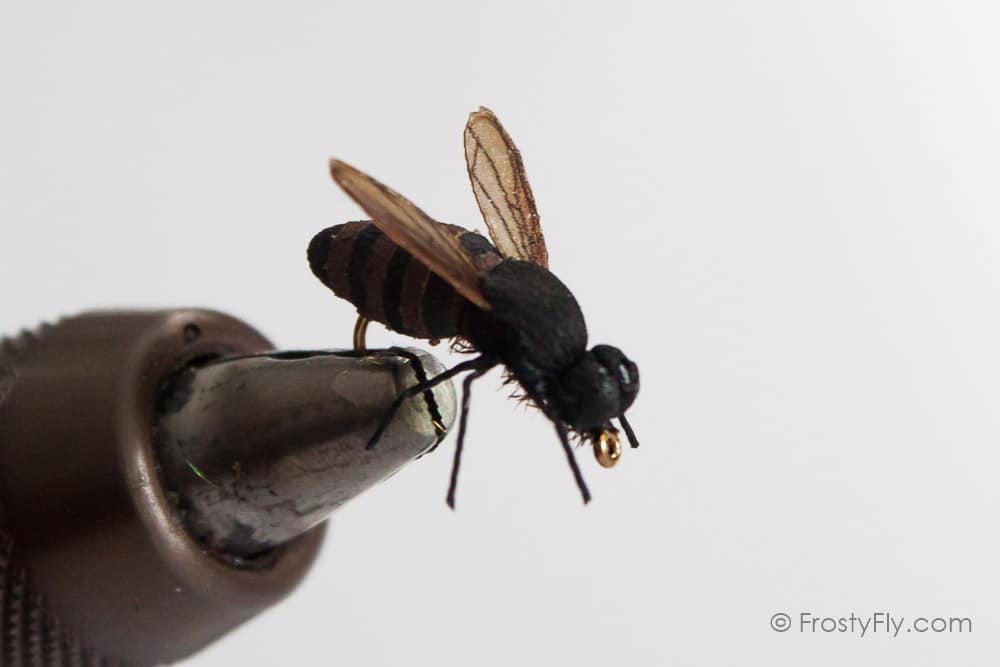
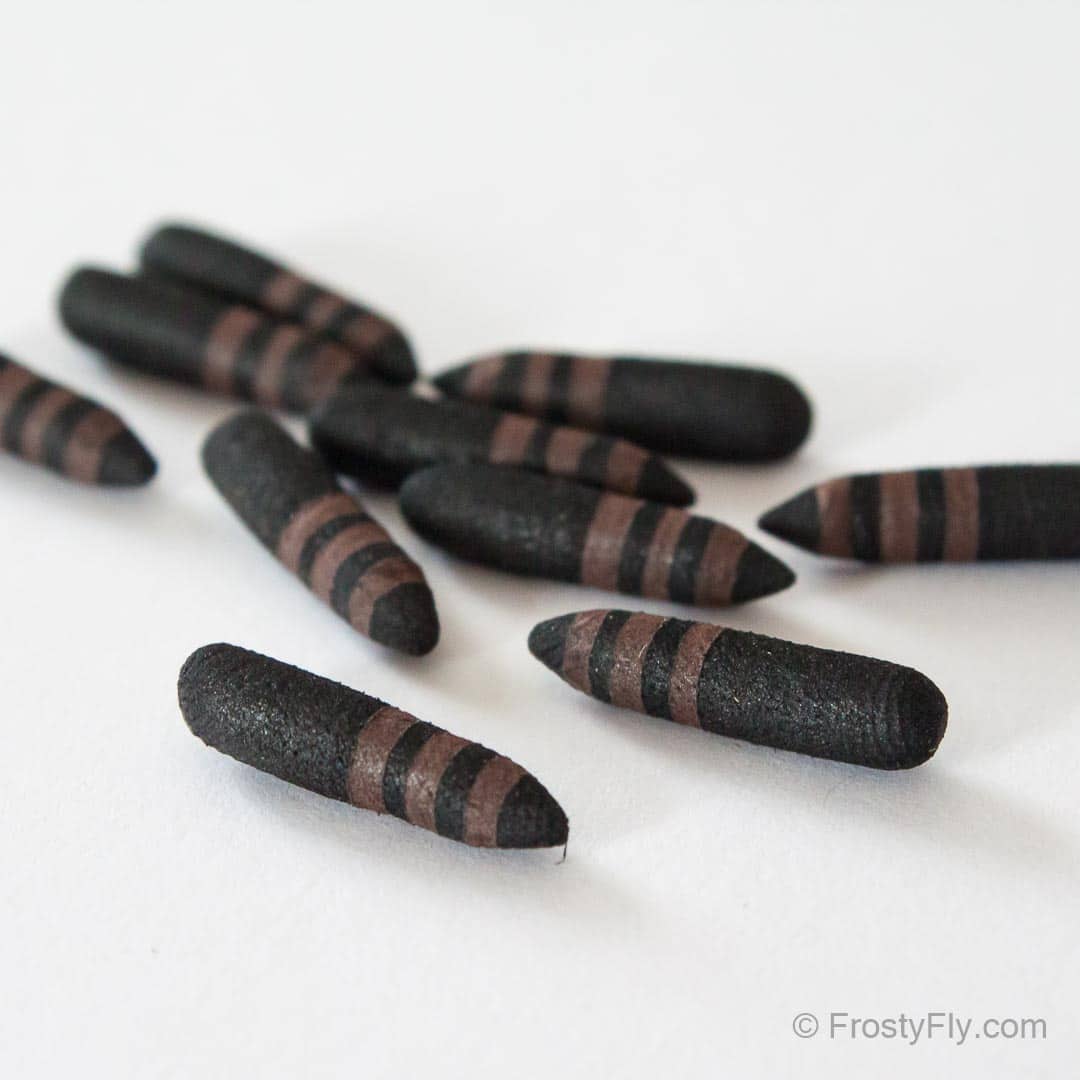
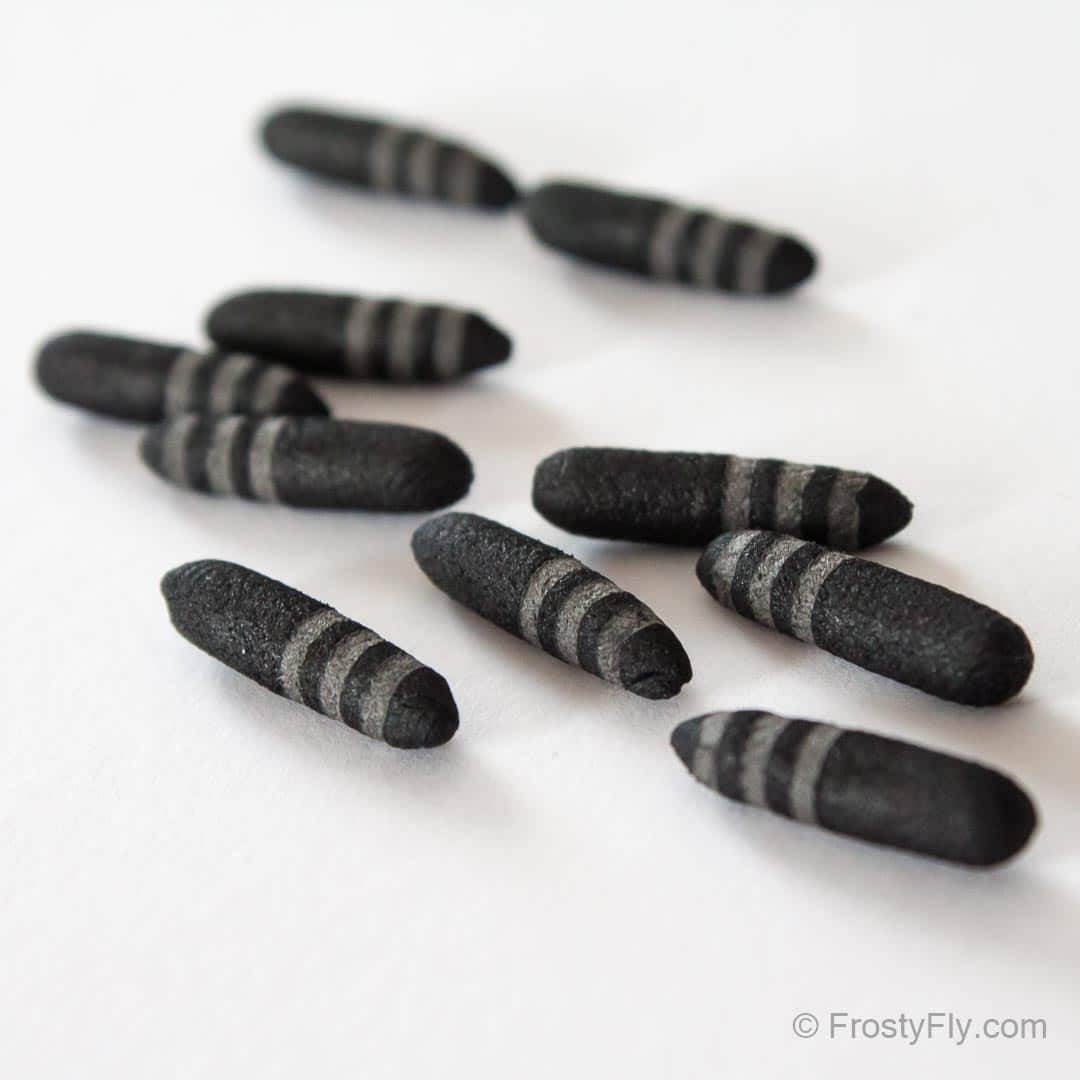
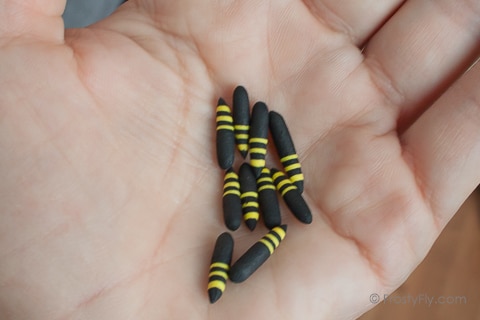
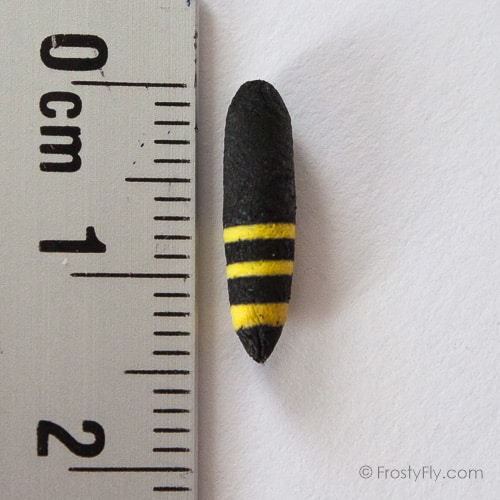
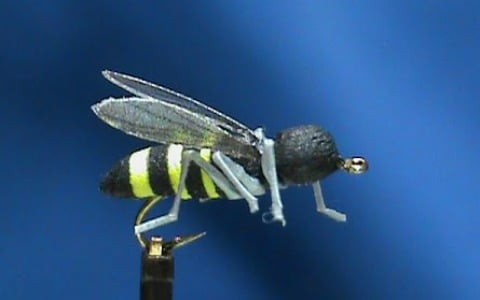

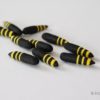
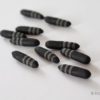
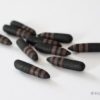
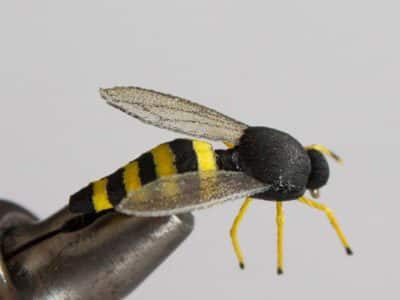
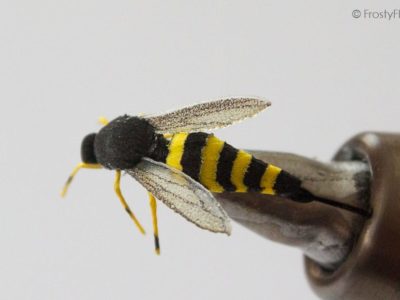
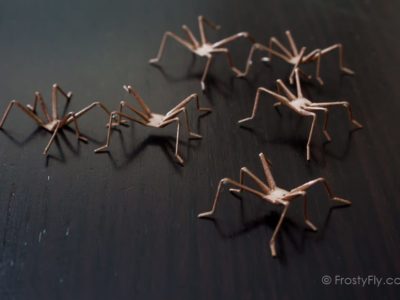
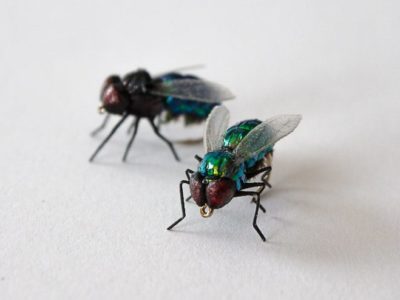
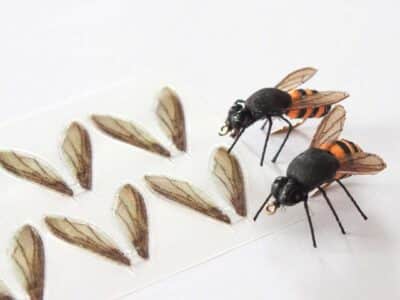
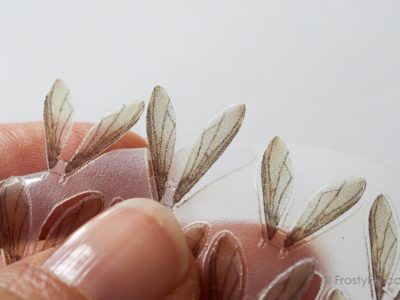
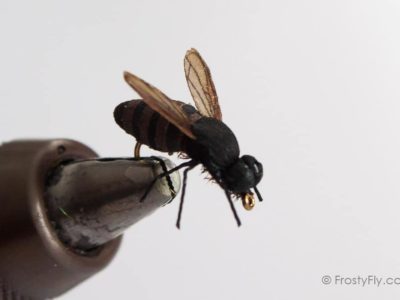
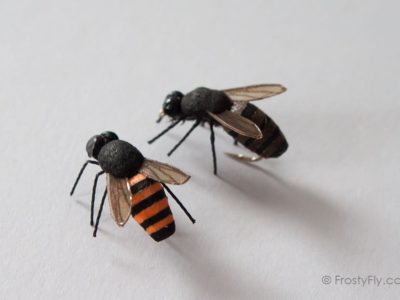
Gabor Gardonyi (verified owner) –
Cutting perfect cylinders and marking them was my way. It was a chore. Not anymore with these bodies. I fully recommend them if you want to tie nice yellowjackets. Trout on my river can’t resist them
Terry Krueger (verified owner) –
The trick is working the needle through the foam body without impaling your thumb. The striped portion of the body is covered with a plastic coating that is difficult to penetrate. The eye of the hook also has a tendency to catch on the interior foam and gouge it.
Boris –
Thanks for your review, Terry. You can also try another method: cut along the body with exacto knife and insert the hook instead of using bodkin needle.